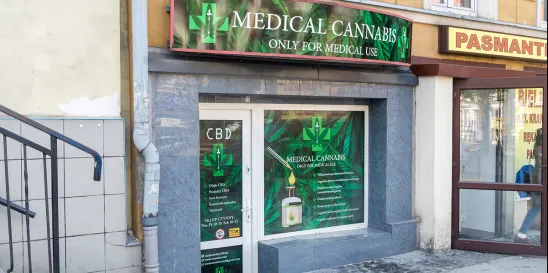The Marijuana Regulation and Taxation Act (MRTA), enacted in 2021, allows adults 21 and over to possess, consume, and cultivate cannabis for personal use. The MRTA also established the Office of Cannabis Management (OCM), which oversees the implementation and enforcement of the MRTA, including the regulation of the retail sale of cannabis. This legalization has opened a significant opportunity for entrepreneurs and investors in New York City, provided they are able to navigate certain legal risks.
The Right Location
The first challenge for landlords is confirming that their building is a suitable location that complies with OCM's regulations (and local zoning and land use laws). Under the NYC Zoning Resolution and NYC Construction Codes, cannabis dispensaries are classified in Use Group 6C. Cannabis retail locations must be at ground level. In addition, the MRTA prohibits cannabis retailers from operating within 500 feet of a school or 200 feet of a place of worship, unless OCM grants a specific exception. However, the key limitation for landlords to have in mind is that each cannabis retail location cannot be within 1,000 feet of another legal retail dispensary. This means that, unless OCM loosens this rule, as new retail locations are approved, there will be fewer and fewer suitable remaining potential retail locations available for the retail sale of cannabis.
Legal Risks
Even if a landlord has secured the right location, leasing to a cannabis retailer presents multiple additional challenges. The first and most salient legal issue is determining whether the underlying debt encumbering the property allows for a cannabis retailer to operate. Almost every commercial loan agreement will have a provision requiring the landlord to operate its building in compliance with law. While legal in New York, the sale of cannabis is illegal under federal law, which means that landlords may be in violation of their mortgage upon execution of a lease for a cannabis retail location.
Savvy tenants’ attorneys understand this and will require the landlord to pay off their debt or obtain a Subordination Non-Disturbance Agreement (SNDA) from their lender once a tenant receives their retail license. While local banks involved in the New York real estate industry have been willing to grant SNDAs to cannabis retailers, national and international banks have been less willing to do so. Some lenders have indicated to landlords that they will be in default under their mortgage upon entering into such a lease.
Licensure Risks – Negotiating a Contingency Period
In New York, licensure for a retail cannabis location is conditioned upon site control. Therefore, the landlord does not know whether their tenant will actually receive their license at the time the lease is executed. Of course, a landlord would prefer a tenant that has already received provisional licensure, which means that the tenant should receive a license pending the approval of its location. However, even a provisional licensee is not guaranteed a license once site control is obtained, especially if the site does not meet OCM’s criteria.
While we have heard of oral location approvals, OCM will not guarantee in writing that a location is acceptable prior to the tenant securing site control via a signed lease or option to lease. Therefore, tenants will generally require a contingency period, lasting for up to three to six months after execution of the lease, during which the tenant can cancel the lease if they do not receive their license (often times upon the payment of a predetermined “break-up fee”). The rent during these contingency periods is also often lower than the rent payable during the remainder of the term, as the tenant will not be operating or generating revenue during the contingency period.
The Neighbors
Landlords must have neighbors and other stakeholders in mind when leasing to a cannabis retailer, especially any residents living above the retail space. Under the lease terms, tenants should be required to control any crowds or long lines that gather in front of the premises and prevent any consumption of cannabis on or adjacent to the premises. Ideally, the lease will require tenant to employ security to enforce any restrictions. Lastly, landlords should also strongly consider the hours the cannabis tenant is permitted to operate (preventing the retailer from staying open late into the evening).
Conclusion
Leasing to a cannabis retail operator can be a lucrative opportunity for landlords, as tenants often pay above-market rents for these locations provided they can navigate the significant legal and operational challenges. Landlords need to be well-informed of the legal and practical issues involved and seek professional advice from lawyers and brokers who specialize in the New York City cannabis industry.




 />i
/>i

